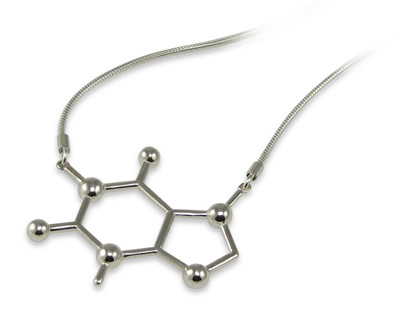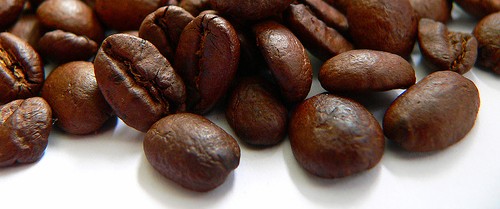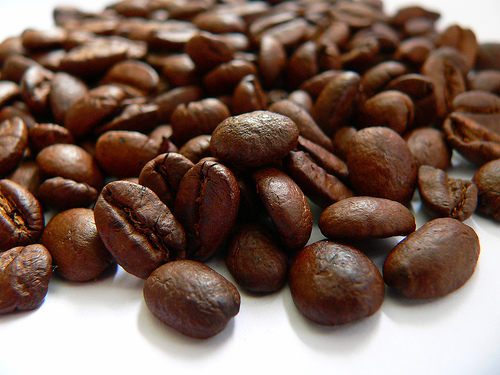Caffeine Pharmacology

Cas No. [58-08-2]
 Global consumption of caffeine has been estimated at 120,000 tonnes
per year, making it the world's most popular psychoactive substance.
This number equates to one serving
Global consumption of caffeine has been estimated at 120,000 tonnes
per year, making it the world's most popular psychoactive substance.
This number equates to one serving
 of a caffeine beverage for every
person, per day. Caffeine is a central nervous system and metabolic
stimulant, and is used both recreationally and medically to reduce
physical fatigue and restore mental alertness when unusual weakness
or drowsiness occurs. Caffeine and other methylxanthine derivatives
are also used on newborns to treat apnea and correct irregular
heartbeats. Caffeine stimulates the central nervous system first at
the higher levels, resulting in increased alertness and wakefulness,
faster and clearer flow of thought, increased focus, and better
general body coordination, and later at the spinal cord level at
higher doses. Once inside the body, it has a complex chemistry, and
acts through several mechanisms as described below. of a caffeine beverage for every
person, per day. Caffeine is a central nervous system and metabolic
stimulant, and is used both recreationally and medically to reduce
physical fatigue and restore mental alertness when unusual weakness
or drowsiness occurs. Caffeine and other methylxanthine derivatives
are also used on newborns to treat apnea and correct irregular
heartbeats. Caffeine stimulates the central nervous system first at
the higher levels, resulting in increased alertness and wakefulness,
faster and clearer flow of thought, increased focus, and better
general body coordination, and later at the spinal cord level at
higher doses. Once inside the body, it has a complex chemistry, and
acts through several mechanisms as described below.


>>
New Product
Introduced :
Oseltamivir
Phosphate,
Phenyl Propanolamine,
Phenylephrine,
Etafedrine


|

 We all know that one of the most
powerful chemical compounds found in both coffee and tea is
caffeine. Has caffeine become an important part of your daily life?
Did you know We all know that one of the most
powerful chemical compounds found in both coffee and tea is
caffeine. Has caffeine become an important part of your daily life?
Did you know
Article : What Is Caffeine?
 Caffeine is a drug that is naturally
produced in the leaves and seeds of many plants. It's also produced
artificially and added to certain foods. Caffeine is defined as a
drug because it stimulates the central nervous system, causing
increased alertness. Caffeine gives most people a temporary energy
boost and elevates mood. Caffeine is a drug that is naturally
produced in the leaves and seeds of many plants. It's also produced
artificially and added to certain foods. Caffeine is defined as a
drug because it stimulates the central nervous system, causing
increased alertness. Caffeine gives most people a temporary energy
boost and elevates mood.
Caffeine is in tea, coffee, chocolate, many soft drinks, and pain
relievers and other over-the-counter medications. In its natural
form, caffeine tastes very bitter. But most caffeinated drinks have
gone through enough processing to camouflage the bitter taste.
Teens usually get most of their caffeine from soft drinks and energy
drinks. (In addition to caffeine, these also can have added sugar
and artificial flavors.) Caffeine is not stored in the body, but you
may feel its effects for up to 6 hours.
![Caffeine Cas No. [58-08-2]](caffeine/CAFFEINE%20LOGO%20SMALL.bmp)
|


